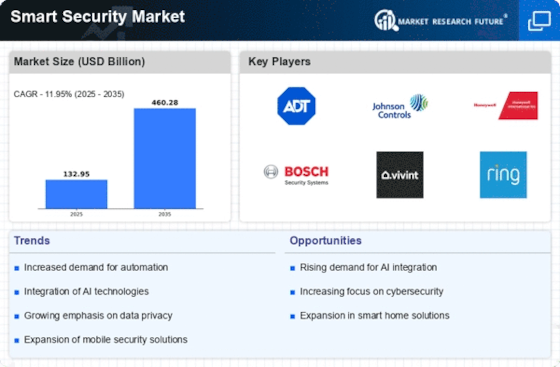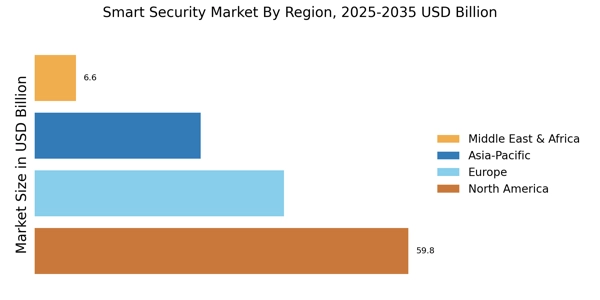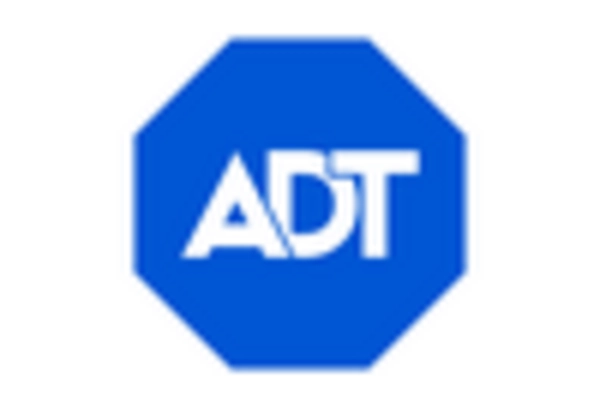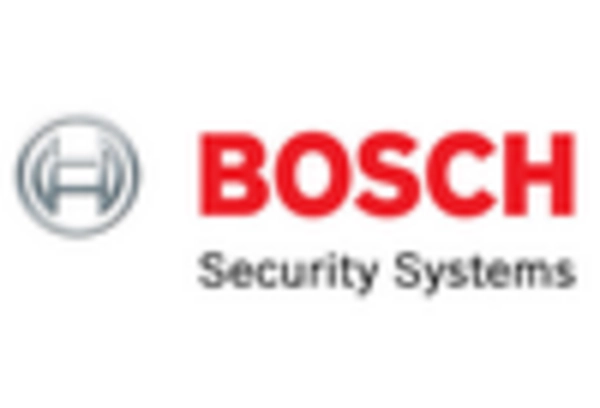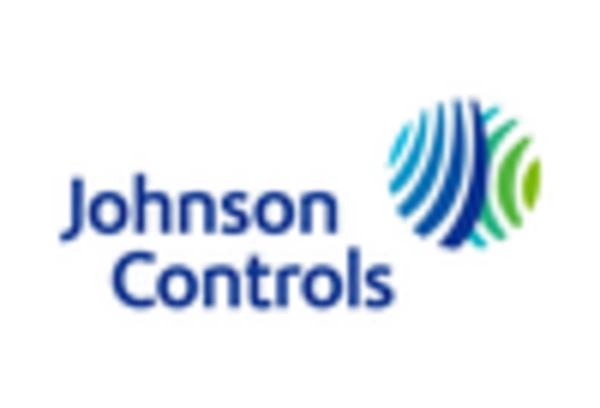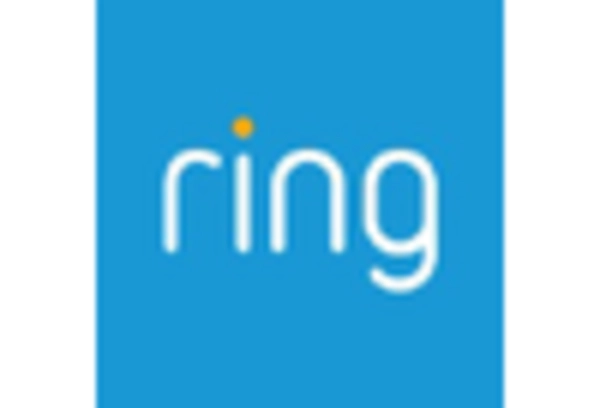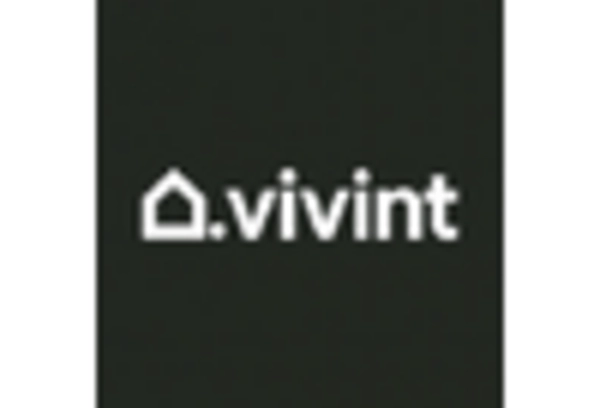Rising Security Concerns
The increasing prevalence of crime and security threats has heightened the demand for advanced security solutions. As individuals and businesses seek to protect their assets, the Smart Security Market experiences a surge in interest. Reports indicate that property crime rates have seen fluctuations, prompting consumers to invest in smart security systems. This trend is particularly evident in urban areas, where the need for surveillance and monitoring is paramount. The Smart Security Market is thus positioned to benefit from this growing awareness, as consumers prioritize safety and security in their purchasing decisions. The integration of innovative technologies, such as smart cameras and alarm systems, further enhances the appeal of these solutions, making them indispensable for modern security needs.
Technological Advancements
The rapid evolution of technology plays a crucial role in shaping the Smart Security Market. Innovations in artificial intelligence, machine learning, and the Internet of Things (IoT) have led to the development of sophisticated security systems that offer enhanced functionality. For instance, smart cameras equipped with AI capabilities can analyze real-time data to detect unusual activities, thereby improving response times. The market is projected to grow significantly, with estimates suggesting a compound annual growth rate of over 20% in the coming years. This technological momentum not only attracts consumers but also encourages manufacturers to invest in research and development, further propelling the Smart Security Market forward. As technology continues to advance, the potential for new applications and features remains vast.
Increased Adoption of Smart Homes
The trend towards smart home technology has a profound impact on the Smart Security Market. As more households integrate smart devices, the demand for comprehensive security solutions that can seamlessly connect with these systems rises. Homeowners are increasingly looking for security products that can be controlled remotely via smartphones or integrated with home automation systems. This shift is reflected in market data, which indicates that the smart home security segment is expected to witness substantial growth, driven by consumer preferences for convenience and control. The Smart Security Market is thus adapting to these changing dynamics, offering products that not only enhance security but also complement the overall smart home ecosystem. This convergence of technologies presents a lucrative opportunity for stakeholders in the market.
Regulatory Compliance and Standards
The Smart Security Market is influenced by the evolving landscape of regulatory compliance and standards. Governments and regulatory bodies are increasingly establishing guidelines to ensure the safety and effectiveness of security products. This regulatory environment compels manufacturers to adhere to specific standards, which can enhance consumer trust and confidence in smart security solutions. Compliance with these regulations often requires investment in quality assurance and product testing, which can drive innovation within the industry. As a result, companies that prioritize compliance may gain a competitive edge in the Smart Security Market. Furthermore, the emphasis on data privacy and protection is likely to shape product development, as consumers become more aware of their rights and the importance of secure systems.
Growing Demand for Remote Monitoring Solutions
The demand for remote monitoring solutions is a key driver in the Smart Security Market. As individuals and businesses seek to maintain oversight of their properties from afar, the appeal of smart security systems that offer remote access becomes increasingly evident. This trend is particularly pronounced among businesses that require constant surveillance of their premises. Market analysis suggests that the remote monitoring segment is poised for growth, with consumers valuing the ability to monitor their properties in real-time through mobile applications. The Smart Security Market is responding to this demand by developing user-friendly interfaces and robust connectivity options, ensuring that customers can easily access their security systems from anywhere. This shift towards remote capabilities not only enhances security but also provides peace of mind for users.


